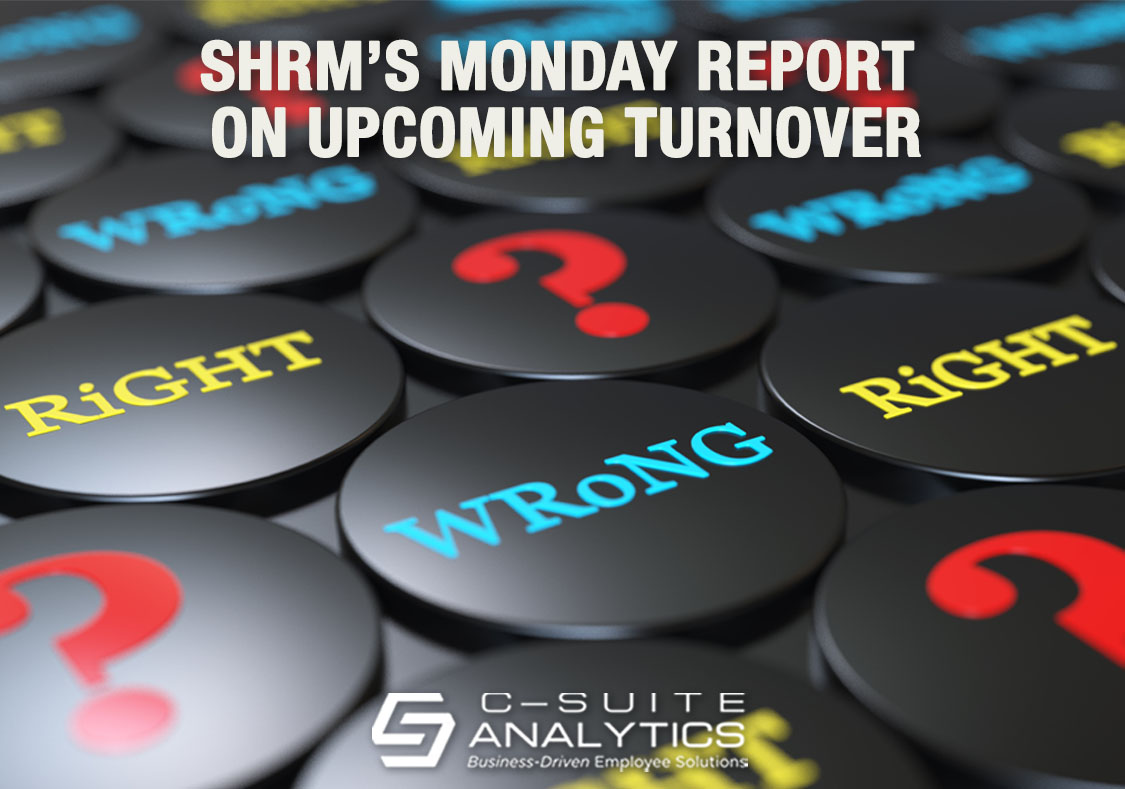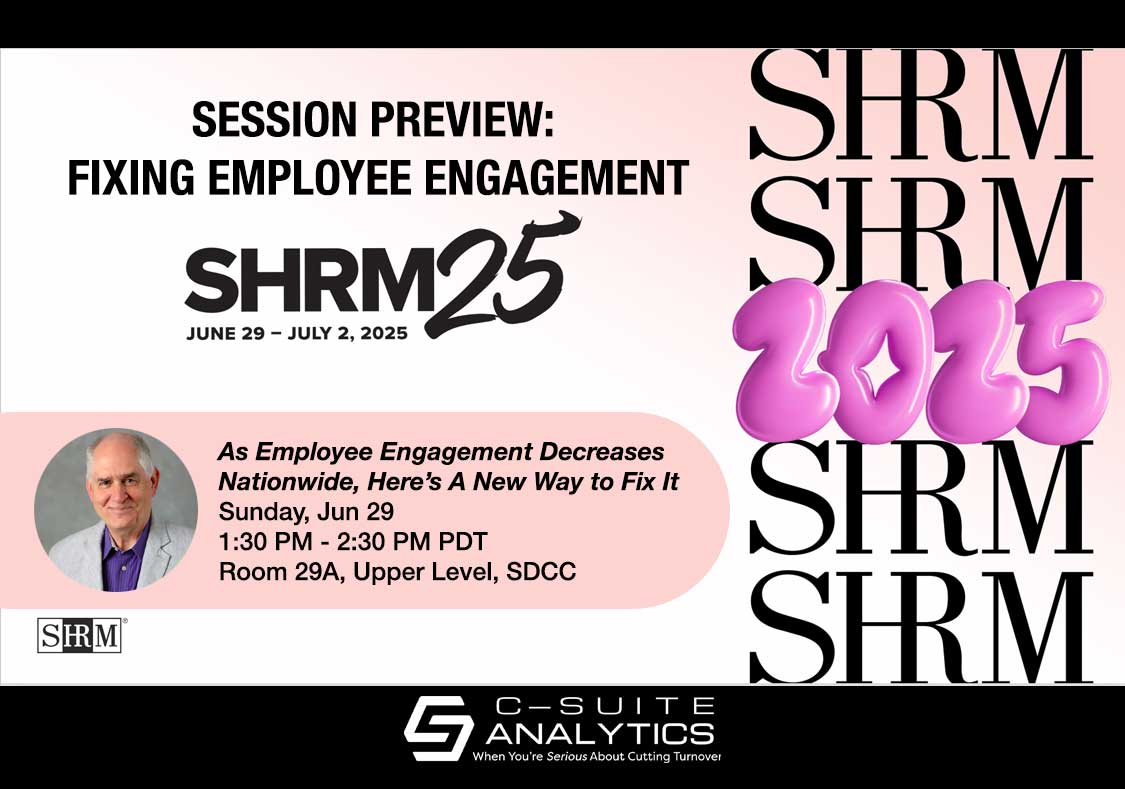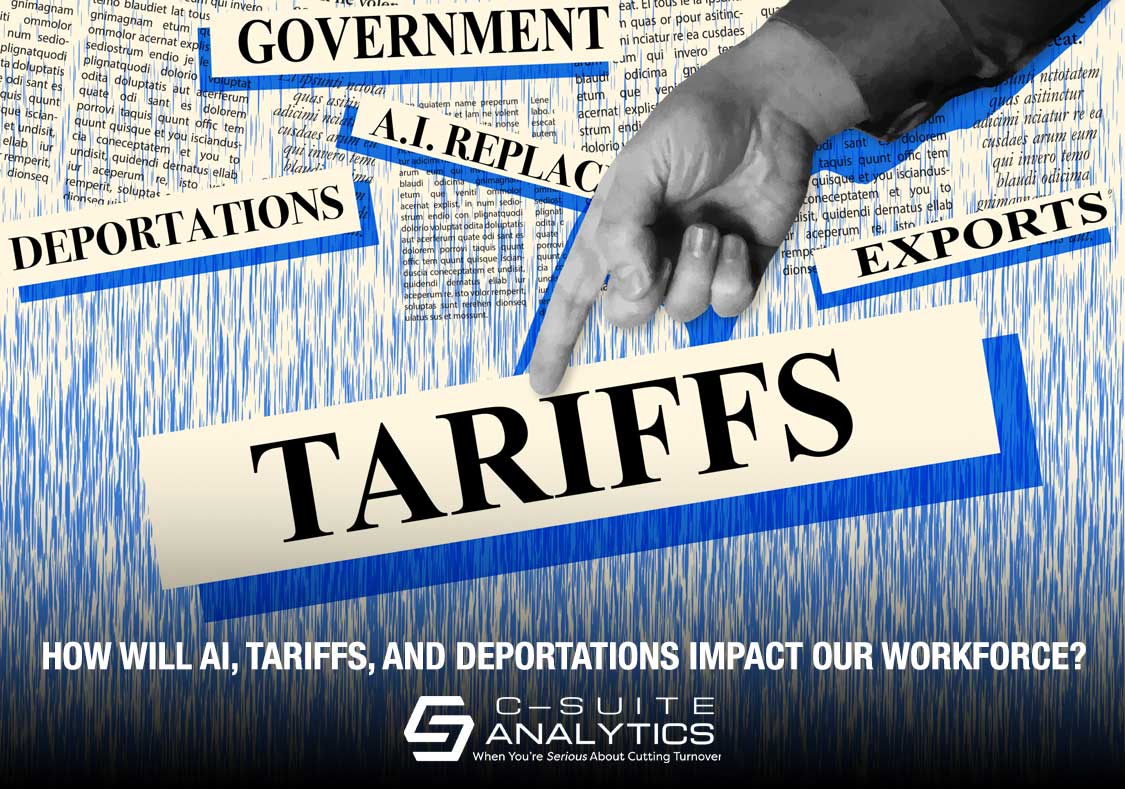To be blunt, employee engagement is a mess. Gallup says global disengagement costs $8.8 trillion…
What’s Right…and Wrong…About SHRM’s Monday Report on Upcoming Turnover

In their weekly member newsletter yesterday, SHRM predicted a turnover “tsunami” once the pandemic ends, re-surfacing that employee retention is at major risk regardless of today’s unemployment rate.
The report is based on two studies, one predicting more than half of surveyed employees in North America will look for a new job in 2021, and the other that one quarter of employees will quit their jobs outright once the pandemic subsides. This part of their report is spot on as I’ve reported here various indicators employees are gearing up to leave, most notably the Brookings Institution’s report that unemployment will dip down to 3.2% by year end.
The reports detail the usual list of reasons employees will leave…disengagement, comp and ben, wanting promotions. Also prominent and worth noting is “burnout”, noted by many surveyors and practitioners who were interviewed for the piece. Here is a quote worth reading twice:
“More than half of employees who are currently working from home worry their manager doubts their productivity. To compensate, more than 2 in 5 employees are starting their workdays earlier or working later, and more than a third are skipping lunch breaks in an effort to show productivity to managers.”
Wouldn’t it be tragic if those employees quit because of their misplaced doubt regarding their managers’ confidence in them, when their managers believed in their work all along?
The report concludes with four recommendations about re-engaging, listening, recognizing…followed by this one:
Conducting external stay interviews to better understand turnover risk.
This obviously violates every Stay Interview principle I’ve ever presented or supported, and as the Stay Interview inventor I strongly hold a different view. The number one reason Stay Interviews are so effective ties back to their first objective, for individual leaders to build trust with their individual employees. Any third-party interview and subsequent report is no better than another employee survey…that will result in more one-size-fits-all programs. The suggested method here not only implies leaders can’t be trusted but gives no forward path for them to build trust. Firstline leaders are just erased, omitted, from the solution…when in fact they ARE the solution.
Some of you know I proudly hold a “fake PhD in turnover”. When asked to write my first book my mind was proud and my heart was intimidated, causing me to ultimately ask a professor of industrial psychology to tutor me on the scientific findings on what really cuts turnover. The main lesson was this:
The #1 reason why employees stay or leave based on how much they trust their boss.
This is why our client companies cut turnover 30% and more…because Stay Interviews are conducted by individual leaders with their individual employees in order to build trust. Finnegan’s Arrow then surrounds Stay Interviews with (1) converting turnover to dollars, (2) establishing retention goals for leaders, (3) asking leaders to forecast how long each employee will stay, and then (4) holding leaders accountable for achieving their retention goals and developing accurate forecasts.
So for any of you who read SHRM’s otherwise-solid report yesterday along with those of you who did not, the good news is that report stimulated a very, very important discussion about this still-in-its-infancy concept of Stay Interviews. Firstline leaders drive employee retention and engagement, and all of the rest of the one-size-fits-all programs we implement come in second place and a long way back.
Besides, when was the last time you heard a good worker say, “My boss treats me like dirt, but I’m holding on for employee appreciation week”? The same goes for company clocks, career days, pet insurance, and any event with food. They all bring zero value if each employee doesn’t trust her boss.
Dick Finnegan is SHRM’s top-selling author and top-rated webcast presenter. Please email your comments to DFinnegan@C-SuiteAnalytics.com. Contact Dick to discuss how we can help you retain your valuable employees. You are also welcome to forward this blog to anyone you believe would find it helpful.



